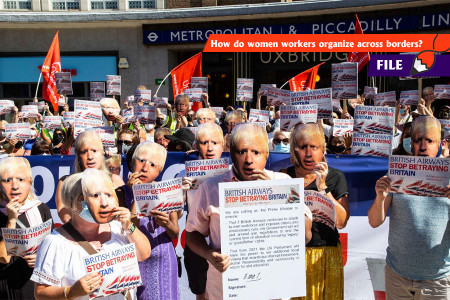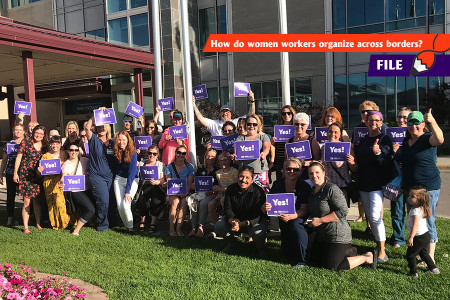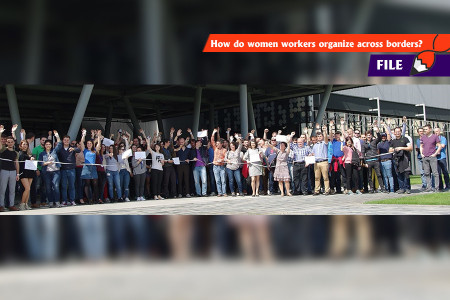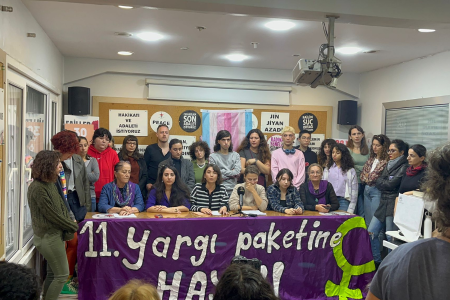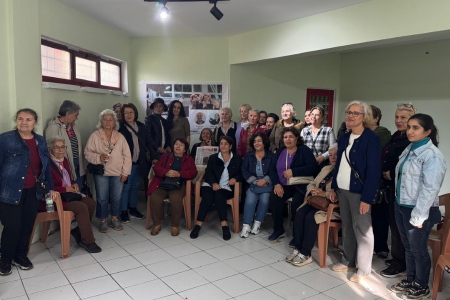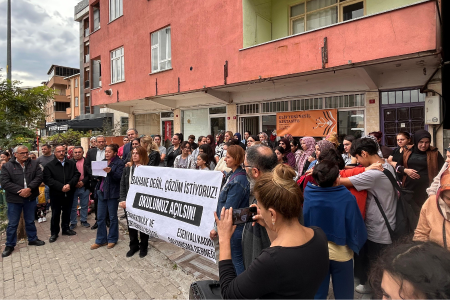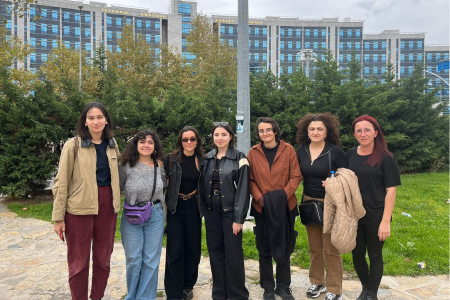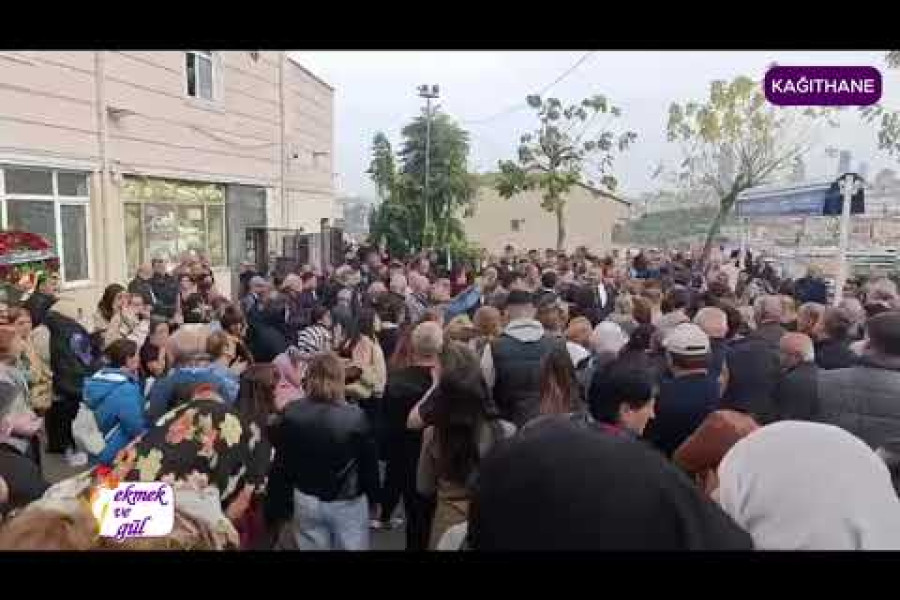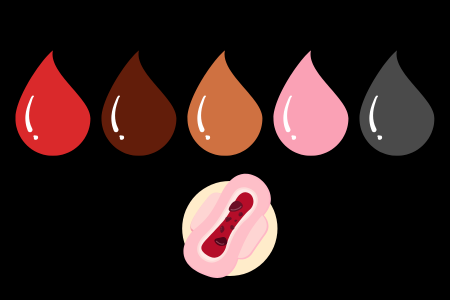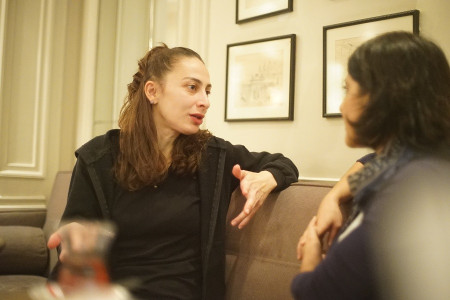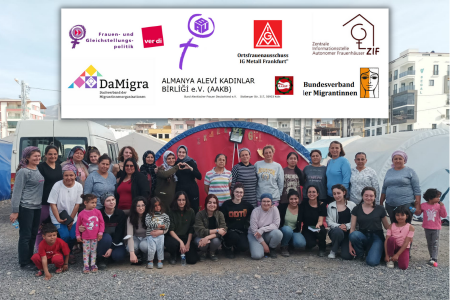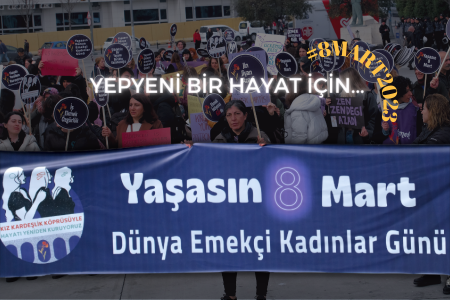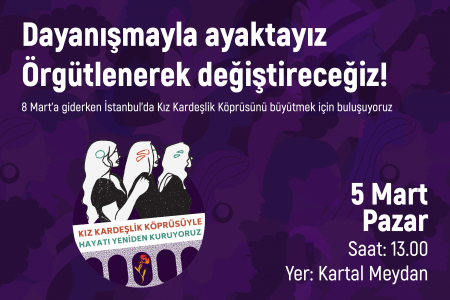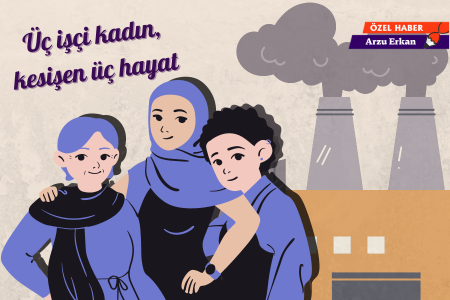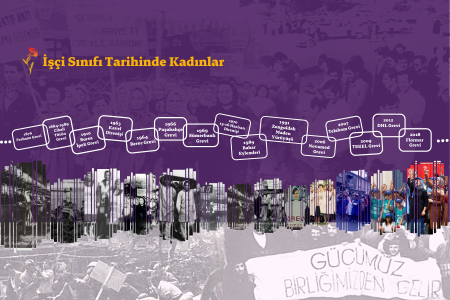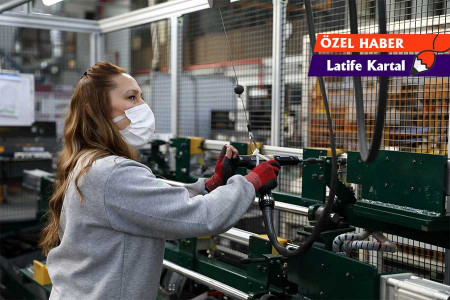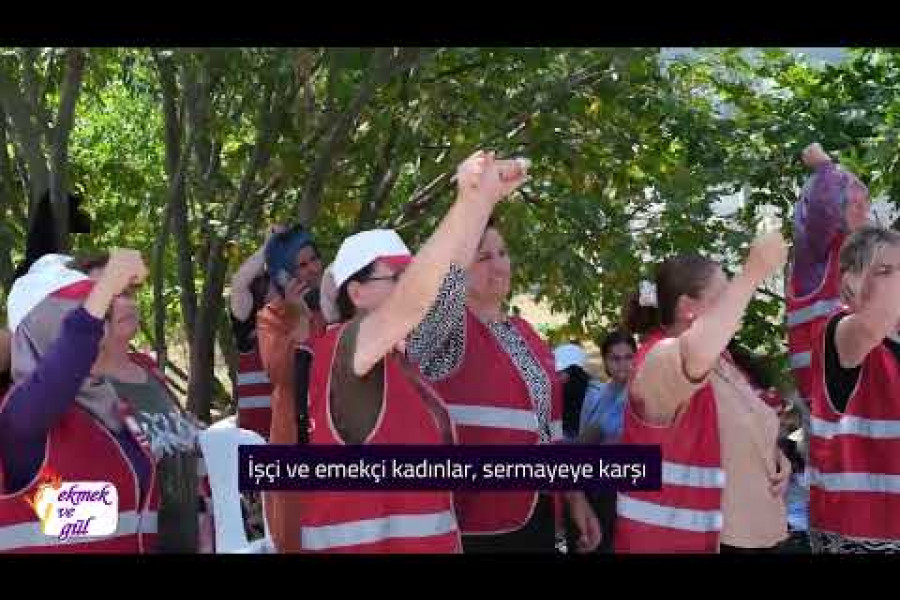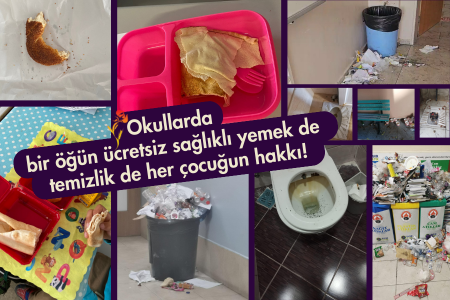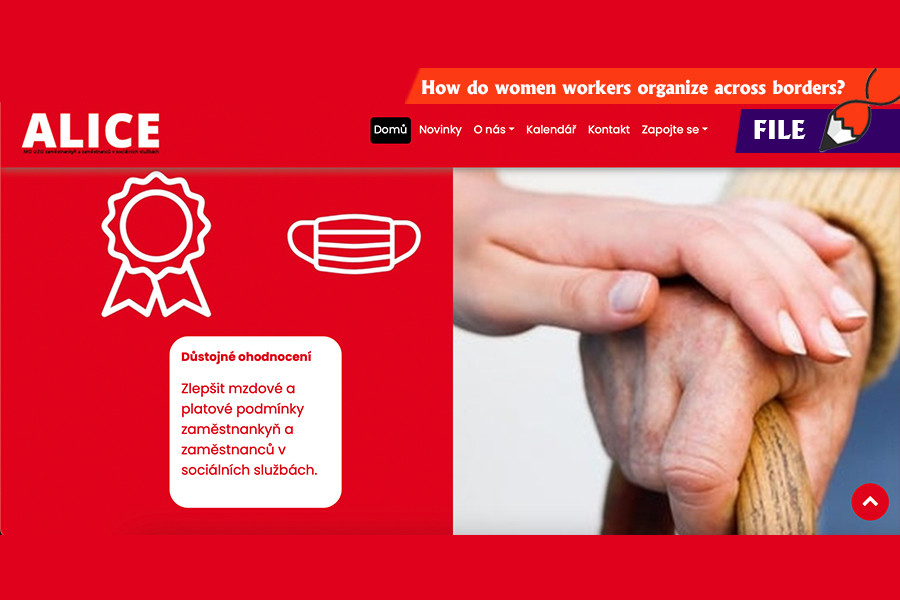
Care sector is seen “feminine job” in Czech Republic where 86% of workers in the sector are women. Workers continue to organise themselves under Alice UZO, which they established both at the company level and the sectoral level. They demand recognition of the importance and impact of the care sector, better working conditions, and stable and decent salaries. Union organiser Ester Topolarova explains the details of the organising carried out by workers and organisers altogether.
What are the issues in your sector? Any specific issues involving women? Any Covid-19 related issues? What are the demands?
The care sector in the Czech Republic of course isn’t homogeneous, but through a survey which we did as Alice, the members identified a few that seem to unite the struggles within it. These three topics, which will correspond to the topics in an upcoming petition, are 1) wages, 2) 5-week vacation, and 3) increase of the recognition of care work and its importance in the society. None of them are easy or short-term issues to be won within the next few months, especially because they require campaigning not only at the company level but also at a sectoral level also the political level. On the company level, the workers I speak to the most are often affected by mobbing in the workplace, inadequate facilities at the workplace, and also for example lack of training for their respective positions (of course in addition to the issues that Alice took up on the sectoral level).
The care sector generally is dominated by women, and care is often seen as “feminine job”. In getting to know this sector, one of our members analysed data the union received from the government and found out that 86% of workers in the sector are women and 14% are men, while in leadership positions there is 57% of women and 43% of men (given that our government uses data that only allow the gender binary). In that sense, all the above-mentioned issues directly and mostly affect women workers. The union both on sectoral as well as company level is predominantly women led. Therefore, there is a general understanding of the importance of addressing gender issues within the union.
How do you organise in your sector?
Alice as a sectoral trade union was formed in the summer of 2020 in reaction to the first wave of coronavirus in the Czech Republic. In the first wave, workers in the care sector, be it social workers, carers, or cleaning staff, didn’t become visible as one of the most affected workers encountering people every day, while other professions did get such recognition. There was an open letter to secure financial benefits for these workers as well that over 1800 people signed, many from the sector. We started calling these workers who were predominantly unorganised in private care sector contacted us. Slowly an organizing committee was formed around the idea of the sectoral union which then workers collectively brought to life after having discussed most suitable strategies and organisational forms to improve the working conditions in the sector. The main goals agreed on by the workers, which also correspond to the petition demands confirmed by the survey are 1) recognition of the importance and impact of the care sector, 2) better working conditions, and 3) stable and decent salaries.
Have you done any collective actions you took / planing to take physically or digitally)? How do you make sure that the workers actively participate in organising?
There are many things I could write because Alice does quite a lot of things on a few fronts which help the union grow and slowly build power. I have decided to focus on my personal experience in the campaigns that I know, and which are close to my heart. I mostly work with workers who organize in their workplace under the sectoral union. They are quite intertwined through communication and the roles some of the workers have in the sectoral union. Given such environment, our first collective action was a survey and a discussion event, and now we are developing the next one. The survey worked in the workplace while the online discussion in digital space. We do not openly share the name and details of the workplace, as we are still in the period of accumulating power for our organising, and we are doing underground work.
In this particular case of pandemic, the digital space encouraged workers active participation in organizing. Since in the Czech Republic we were not able to meet with people outside of our household, workers had to do most of the first 1:1s and bring people to the union. From the moment we agreed about the workplace union under the sectoral union and the first 1:1s with leader and activists, I would say we very much co-organized everything. For the great majority of workers, it was the first time they have joined a trade union, which meant many new things to learn. This included learning to organize and moderate the online meetings, reaching out to colleagues, or calling workers from other facilities who have shown interest in the union. Workers were involved in organising from the very beginning, and they always have the ownership of the organising they learned more about what a union is through the 1:1s and small meetings we did with them. A similar process is happening at the level of the sectoral union, though in a smaller pace, given the size and complexity of the organization.
Any inspiring situation when you have been organising?
For me personally, the most inspiring moment was being able to organize a union together while under covid and having to meet online. While I did miss the offline meetings, I found it very inspiring to see how much online conversations could move people and familiarize them with the idea of the union. Simultaneously, power and community were built. Being in digital space so often also allowed us to interconnect the sectoral and workplace organizing through visiting meetings and sharing information.
What were the outcomes you achieved so far and what are you hoping to achieve as you haven’t completed your campaign yet?
Alice is a young union which was formed less than a year ago while of course the organizing took much longer. Its first company-based union was announced in December of last year, so there are many great starts and many things yet to achieve. The existence and continued interest in forming workplace unions under Alice is a great achievement. Collecting around 400 surveys from across the sector for a political campaign aiming at the parliamentary election in the fall is also a great achievement. There is, however, much more to be done. We all hope that the sectoral union will grow, set up more workplace unions, and be a voice in the public sphere regarding the care sector be it its prestige or the financing from the government. On the workplace level, we are slowly working towards collective bargaining agreements. Before that it means that we need to grow the unions and get more members and workers to be engaged.
Lastly, what would be your message for the May the 1st for our readers of Ekmek ve Gül magazine?
The 1st of May is a good day to remember all the labour that goes into the lives we have, the workers work in order to uphold society, they are the ones who are held down. I am not sure there is a better message than the one that is often already associated with the 1st of May: we need to organize to be the ones who co-define the society in which we live.
CLICK to access full file, 'How do women workers organize across borders?'
Haberin Türkçesi için TIKLAYIN
Photos: Secreeshots from Alice
İlgili haberler
England: 42 000 cabin crew took ‘fire and rehire’ off the table!
British Airways workers campaigned against “fire and rehire”. Dolores Lee, former senior cabin crew and BASSA trade union representative, explains how they won their campaign in the mids of pandemic.
USA: Nurses have won their union, a strong collective agreement is next!
We asked Emma Fletcher, the organizer of the SEIU union, about the details of these nurses’ successful campaign and the collective bargaining process in their hospital.
Romania: IT workers formed their union
IT workers got organized and formed their union and gained 80 percent of members. You can read the details in our interview with Cristina Zaberca, one of the leaders of those workers.
- EN SON
- ÇOK OKUNAN
- ÖNERİLEN
